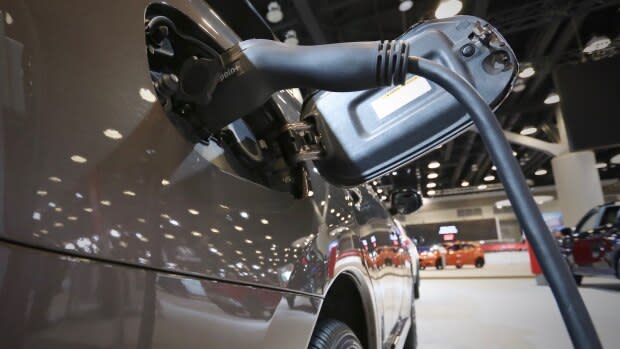B.C. zooms past rest of Canada in sales of zero emission vehicles
B.C. continues to be the national leader by a long shot when it come to the adoption of zero emission vehicles including electric, plug-in hybrids and fuel cell cars.
New numbers released by Electric Mobility Canada show that a full 10 per cent of all new passenger vehicles sold in the province fall into the the ZEV category, well above the national average of 3.5 per cent. Quebec is the next closest province at seven per cent.
Al Cormier, founding president of Electric Mobility Canada, said B.C.'s unique combination of incentive programs, policies and legislation around ZEVs has been effective.
"All that has provided incentives and encouragements to buyers of vehicles in B.C., to researchers, to companies. So generally there are great conditions to promote electric vehicle sales and it's working," said Cormier.
The province currently offers a rebate of up to $3,000 on the purchase of a new electric vehicle, which can be stacked with the $5,000 federal government rebate that was launched in March.
There's also a maximum $6,000 rebate available through the B.C. Scrap-It program for buyers trading an old gas guzzler for a new electric. Additionally, there are incentive programs to help people install charging stations at home.

The data from Electric Mobility Canada suggests B.C. is well ahead of its own targets set in the Zero-Emission Vehicles Act (ZEVA) which was passed earlier this year. ZEVA calls for 2025 as the deadline to reach 10 per cent ZEV sales, and 2040 as date for all vehicles sold in B.C to be emissions free.
'Strong green culture'
But Matthew Klippenstein, an electric vehicle market analyst who helped produce the report, says there's a lot more driving the ZEV uptake in B.C. than incentives and policies.
"If gas was half the existing price, there would be fewer people purchasing EVs," he said. "And I do think there has been a strong ethos, a strong green culture in the province of British Columbia for many years."
Klippenstein believes as more varieties of electric SUV's — and soon, trucks — come onto the market, the ZEV trend will grow even faster.
"It is very promising because now suddenly you have these options that are more suitable for more people's lifestyles, which is fantastic," he said.
According to Klippenstein, there are about 30,000 ZEVs on the road in B.C., representing one per cent of all passenger vehicles in the province.
According to its website, Electric Mobility Canada is a national not-for-profit members-based organization dedicated to the advancement of electric mobility options as a way to fight climate change and support the Canadian economy.

